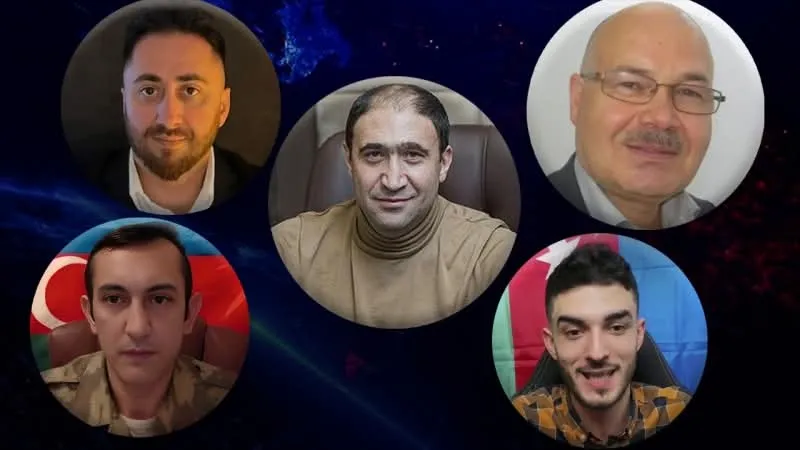Azerbaijani Prosecutor General Summons Exiled Critics Amid Accusations of Political Repression



Under President Ilham Aliyev’s administration, Azerbaijan has faced sustained criticism for its suppression of independent media and civil society. Human rights organizations have documented numerous arrests of activists and journalists on broadly defined charges—such as currency smuggling and defamation—arguing these are often pretexts to silence critics. In its 2022 Country Report, the U.S. State Department noted that the Prosecutor General’s Office regularly summoned and charged journalists, bloggers, and social media users, illustrating a pattern of legal actions targeting peaceful expression.
Ilgar Hajiyev, former head of the Akkord construction firm, is accused of fraud under Article 178.3.2 of the Criminal Code and has had a detention order issued, with his appearance set for July 14 at the Investigation Department.
Mohammad Mirzali, an exiled member of the Azerbaijan Popular Front Party living in France, faces charges of active disobedience (Article 220.2) and incitement to mass riots (Article 281.1) stemming from his organization of the “End Soldier Deaths!” rally in Goychay.
Blogger Gabil Mammadov has been summoned on allegations under 24 separate articles of the Criminal Code, including terrorism and unlawful dissemination of information.
Lawyer and head of the “Azerifreedom” channel, Gurban Mammadov was publicly summoned via Azerbaijan’s Public TV to appear on April 16, facing charges of inciting mass unrest (Article 220.2), calling for a violent overthrow (Article 281.2), and unlawfully disseminating state secrets (Article 284.2) from 2019 to 2023.
Tural Sadigli, leader of the “Azad Soz” internet channel, is wanted in absentia on accusations of inciting riots and other offenses, prompting a formal summon and in absentia detention order.
Exiled blogger Orkhan Agayev, previously placed on a wanted list since September 2020, was ordered to present himself for questioning on April 23 under charges of incitement to violent overthrow of the government.
Journalist and activist Samad Rahimli was summoned for interrogation, reflecting prosecutors’ stated aim to curb the activities of exiled dissidents after domestic opposition is addressed.
The Prosecutor General’s Office has invoked Article 467-13.4 of the Criminal Procedure Code—among others governing evasion, obstruction of investigations, fraud, terrorism, and public disorder—to justify these summonses. Human rights observers argue that these broadly worded statutes are applied selectively to criminalize legitimate political expression and intimidate critics. Azerbaijani authorities reject allegations of political persecution, maintaining that all summonses are grounded in credible legal violations and that no one is targeted for their political beliefs.
The U.S. State Department’s 2022 report warned of a recurring pattern of harassment and intimidation against journalists and activists, emphasizing that such tactics undermine the rule of law. International observers have also highlighted similar interrogations of USAID workers, LGBTQ citizens, and NGO leaders, underscoring a broader strategy to dismantle independent civic space and deter diaspora engagement.

